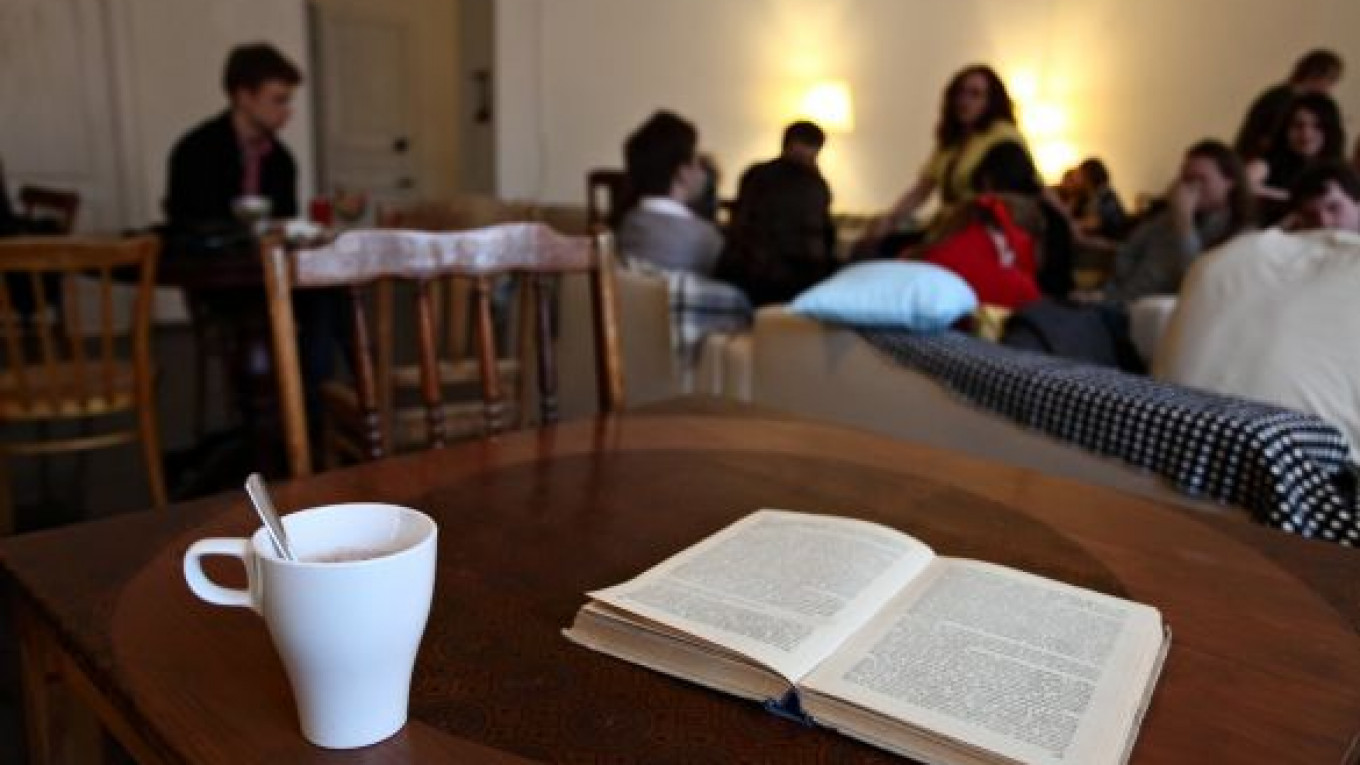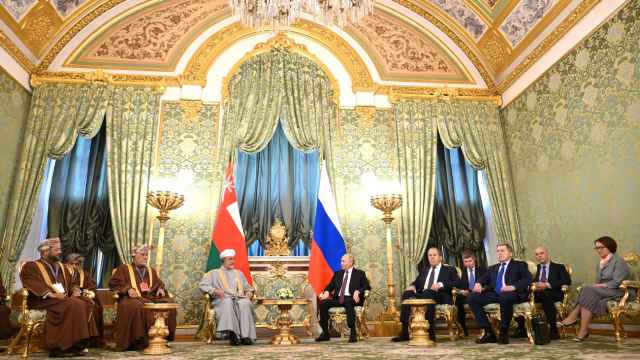There has been an ongoing spat between the Russian pay-as-you-go cafe's London space and its landlord. While Ziferblat, or Clockface, defines their area as an office or shared workspace, the landlord says that they have been operating a restaurant, thereby breaching lease agreements.
"Sad news: we are in danger of closure because the landlord thinks that we have opened a restaurant in his office space," Ziferblat London tweeted on Tuesday. A kickstarter project, "Save Ziferblat," has been set up to raise funds.
Ziferblat management says they need to raise money for paying their landlord, putting down a deposit on a new rental space and starting from scratch again.
The kickstarter sweetly offers an "I saved Ziverblat" badge to those contributing £1 or more, while those donating £75 or more get the very twee "Scheherazade Reward": "Enjoy one of Ziferblat's team members reading to you one short Russian story." Anyone mad enough to donate more than the slightly random figure of £151 gets a "Mad Tea Party."This Carroll-esque scenario will be "characterized by switching places on the table at any given time, making short, personal remarks, asking unanswerable riddles and reciting nonsensical poetry."
Ziferblat anti-cafe-or "shared workspace" was served with an the eviction notice by the owners of its Shoreditch premises because of ongoing disagreements over its legal definition.
Neither the cafe's landlord nor Hackney Borough Council responded to requests for comment.
While there are food and drinks available, customers — as is the case with the Moscow branch — are expected to prepare it themselves. You "clock in" and "clock out," paying only for the time spent there. In the Moscow branch, lectures are often held, with ever-escalating competition from other anti-cafes since the trend exploded in 2012.
However, as it creeps into England, its legal categorization is extremely ambiguous, causing friction over whether it is a B1 category "shared workspace" or a venue "selling food and drink."
Owner Ivan Mitin says the problem is not solely about the lone London Ziferblat venue, but rather the future of the entire project in England.
"If there is no certainty to what use class in property law we belong to, we could be kicked out from any kind of premises. If we rent a restaurant property, A3. they could call us office, library, social club and force us to leave the moment they find someone who would pay more money in rent," he wrote in a statement released alongside the project.
Mitin owns eleven cafes in total, nine of which are in Russia, with one in Ukraine alongside the London venue.
Ziferblat's initial roots lay in Mitin's desire to distribute poetry. He spearheaded a small, but effective literary campaign where strangers met to make cards with famous poems on, and giving them to people around Moscow. He decided that uniting and gathering people was his "talent," and went further.
"Me and my friends rented this small attic in the center of Moscow, and it was based on free donations — they could come and do whatever they liked there ... within a year we literally had no space anymore for new people to come," Mitin said.
They ended up having to move to a more expensive space, which was when the idea of "pay-per-minute" emerged. The project snowballed, and with the help of London manager Tom Kramin, spread west.
"It is not an easy thing, to open something in London, especially for those who are living in Russia," Mitin confessed.
It remains to be seen whether the concept of the anti-cafe will catch on outside of Russia's capital — a review in The Telegraph described visiting Ziferblat as being "like intruding on a slightly awkward house party," and many foreigners have similar reactions to the Moscow outpost.
London Ziferblat seems to already have a following of Russian expats, but they will need to attract locals if they want to thrive — and just having the cheapest coffee in town may not be enough to convert people to a wholly different vision of a cafe.
A Message from The Moscow Times:
Dear readers,
We are facing unprecedented challenges. Russia's Prosecutor General's Office has designated The Moscow Times as an "undesirable" organization, criminalizing our work and putting our staff at risk of prosecution. This follows our earlier unjust labeling as a "foreign agent."
These actions are direct attempts to silence independent journalism in Russia. The authorities claim our work "discredits the decisions of the Russian leadership." We see things differently: we strive to provide accurate, unbiased reporting on Russia.
We, the journalists of The Moscow Times, refuse to be silenced. But to continue our work, we need your help.
Your support, no matter how small, makes a world of difference. If you can, please support us monthly starting from just $2. It's quick to set up, and every contribution makes a significant impact.
By supporting The Moscow Times, you're defending open, independent journalism in the face of repression. Thank you for standing with us.
Remind me later.






